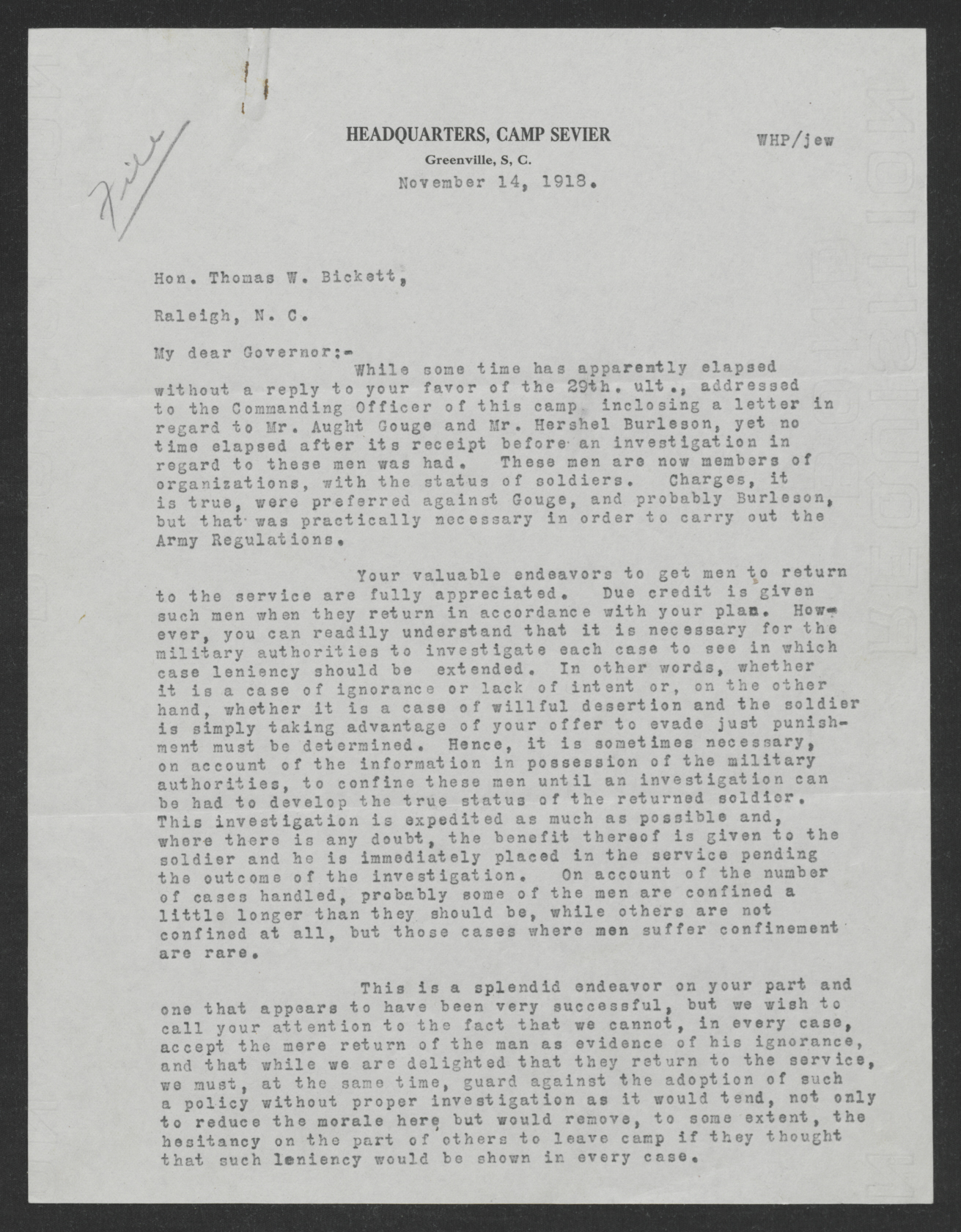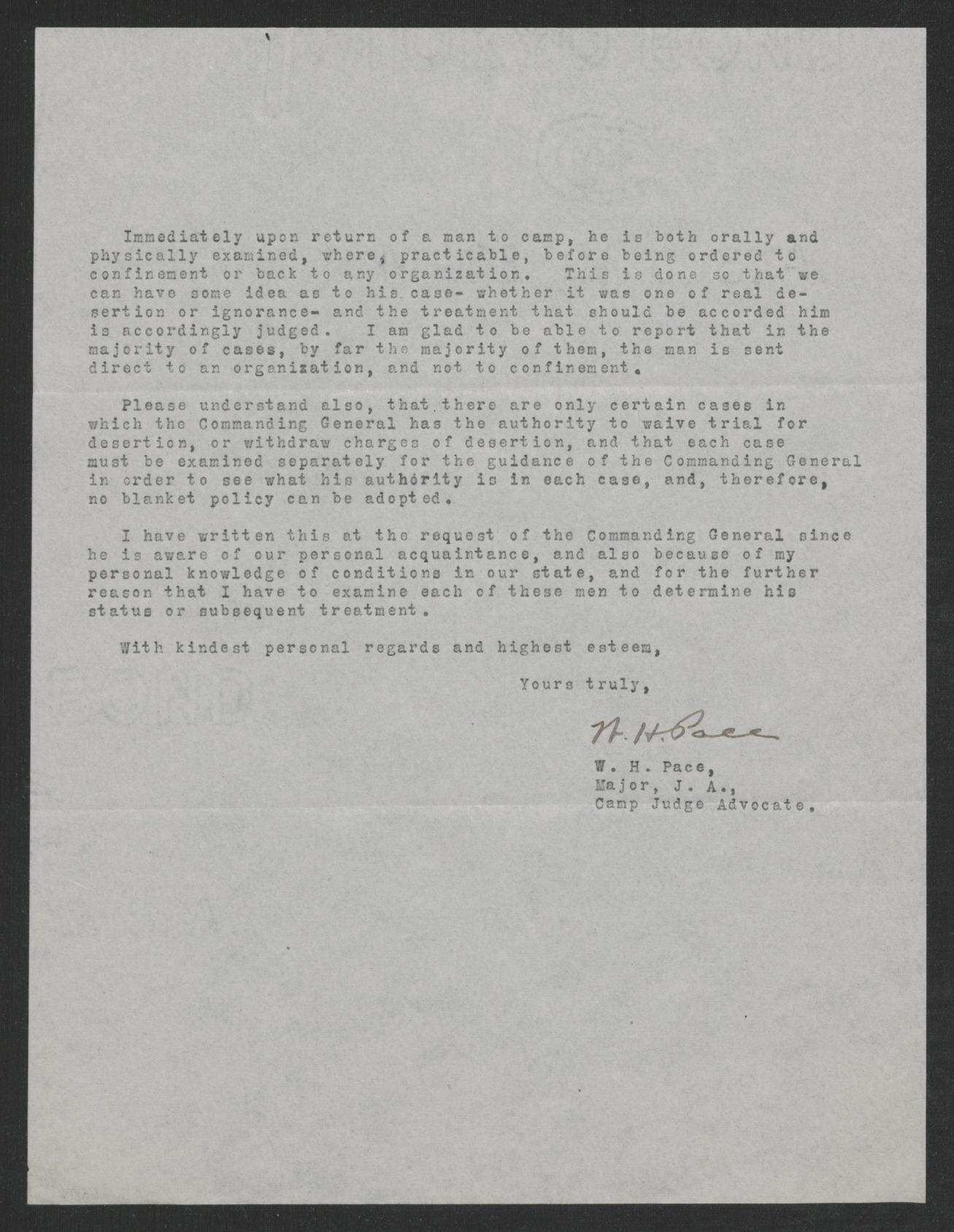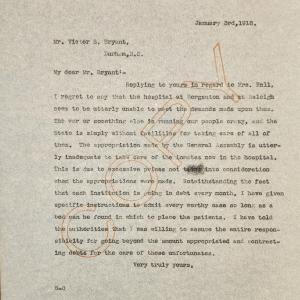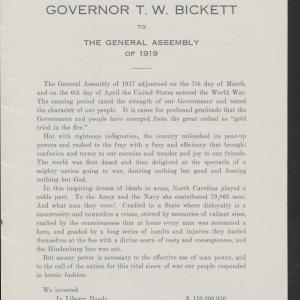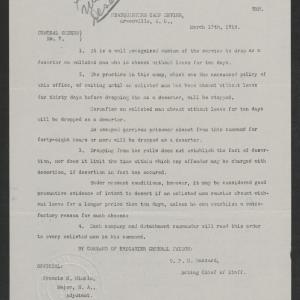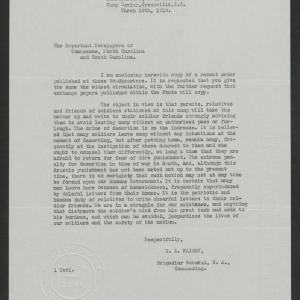WHP/jew
HEADQUARTERS, CAMP SEVIER
Greenville, S. C.
November 14, 1918.
Hon. Thomas W. Bickett,
Raleigh, N.C.
My dear Governor:-
While some time has apparently elapsed without a reply to your favor of the 29th. ult., addressed to the Commanding Officer of this camp inclosing a letter in regard to Mr. Aught Gouge and Mr. Hershel Burleson, yet no time elapsed after its receipt before an investigation in regard to these men was had. These men are now members of organizations, with the status of soldiers. Charges, it is true, were preferred against Gouge, and probably Burleson, but that was practically necessary in order to carry out the Army Regulations.
Your valuable endeavors to get men to return to the service are fully appreciated. Due credit is given such men when they return in accordance with your plan. However, you can readily understand that it is necessary for the military authorities to investigate each case to see in which case leniency should be extended. In order words, whether it is a case of ignorance or lack of intent or, on the other hand, whether it is a case of willful desertion and the soldier is simply taking advantage of your offer to evade just punishment must be determined. Hence, it is sometimes necessary, on account of the information in possession of the military authorities, to confine these men until an investigation can be had to develop the true status of the returned soldier. This investigation is expedited as much as possible and, where there is any doubt, the benefit thereof is given to the soldier and he is immediately placed in the service pending the outcome of the investigation. On account of the number of cases handled, probably some of the men are confined a little longer than they should be, while others are not confined at all, but those cases where men suffer confinement are rare.
This is a splendid endeavor on your part and one that appears to have been very successful, but we wish to call your attention to the fact that we cannot, in every case, accept the mere return of the man as evidence of his ignorance, and that while we are delighted that they return to the service, we must, at the same time, guard against the adoption of such a policy without proper investigation as it would tend, not only to reduce the morale here but would remove, to some extent, the hesitancy on the part of others to leave camp if they thought that such leniency would be shown in every case.
Immediately upon return of a man to camp, he is both orally and physically examined, where, practicable, before being ordered to confinement or back to any organization. This is done so that we can have some idea as to his case- whether it was one of real desertion or ignorance- and the treatment that should be accorded him is accordingly judged. I am glad to be able to report that in the majority of cases, by far the majority of them, the man is sent direct to an organization, and not to confinement.
Please understand also, that there are only certain cases in which the Commanding General has the authority to waive trial for desertion, or withdraw charges of desertion, and that each case must be examined separately for the guidance of the Commanding General in order to see what his authority is in each case, and, therefore, no blanket policy can be adopted.
I have written this at the request of the Commanding General since he is aware of our personal acquaintance, and also because of my personal knowledge of conditions in our state, and for the further reason that I have to examine each of these men to determine his status or subsequent treatment.
With kindest personal regards and highest esteem,
Yours truly,
W. H. Pace
Major, J. A.,
Camp Judge Advocate.
Date:
Sender:
Recipient:
Related People:
Repository:
Collection:
Places:
»» »» South Carolina

